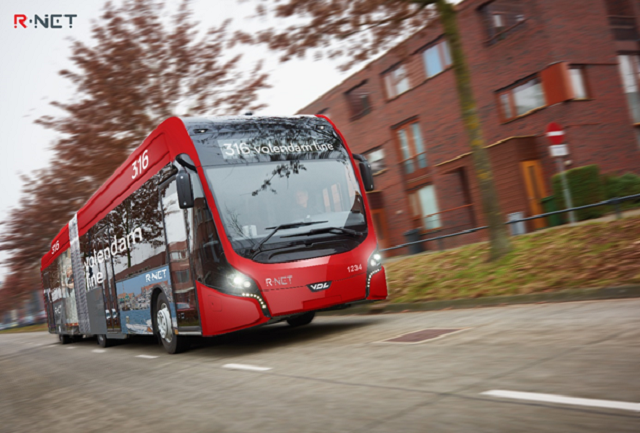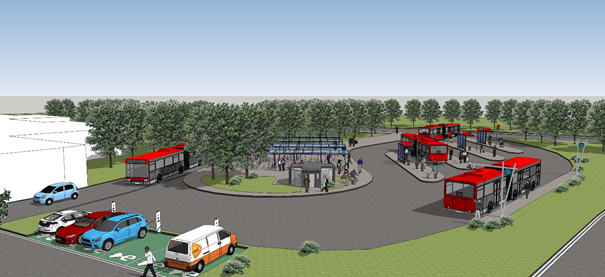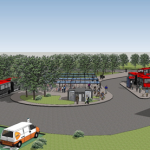
Things are going well with the introduction of Zero Emission buses in the Amsterdam region. From April 2018 100 zero emission buses will be deployed in the area around Schiphol Airport. In summer, the Waterland region will follow with 10 electric buses. Within the entire Amsterdam metropolitan region plans to make public transport more sustainable in the coming period are rolled out at a high pace.
In 2016, the Transport Authorities in the Netherlands signed the National Administrative Agreement Zero Emission Regional Public Transport by bus. This states that by 2025 all new buses must be Zero Emission and must use 100% renewable energy. In 2030, the entire public transport should comply with the zero-emission standard.
Transition continues
The transition has now started in the Amsterdam region. In April 2018, the first 100 full electric buses will run in the Amstelland-Meerlanden concession area. In the 4 concessions (or contracts) in the region of Amsterdam, there are now several plans to convert specific traditional bus lines into Euro-diesel buses by ZE bus lines.
In addition to the sustainability of the buses, we see several trends, such as the change from car ownership to the use of other shared mobility services. The transition to sustainable public transport should match with the new approach of clean and lean mobility. It is important, for example, that the charging infrastructure is located at strategically efficient locations that cater for facilities to charging of electric cars or for car- an bike-sharing at a smartly located public transport hub.
Zero Emission Mobility Program
To organize the transition to Zero Emission Mobility, not by concession, but covering the entire regional scope of policy, the Transport Authority has drawn up a scheme in which together with the operators, the 15 municipalities and the network managers prerequisites are defined, that should enable a logical roll-out of Zero Emission mobility measures.
E-hub at Edam Bus station
In the summer of 2018, operator EBS will start operating with 10 electric buses on a BRT-line (R-Net 316) that connects Amsterdam with the fishermen’s village Edam-Volendam, one of the main typical areal touristic attractions. On that route a choice is made for opportunity charging.
Besides a charging facility at the depot, together with the power network operator a suitable location for a charging station is defined. Discussions with the road authority on the establishment of the interchange are ongoing. It will be designed and equipped as an E-hub where passengers easily switch from bus to bicycle and where space will be made available for an E-car share location and a pick-up point for diverse services and meeting places.

The contract with EBS in the Waterland area expires in December 2021. Nevertheless, the Vervoerregio Amsterdam as transport authority and EBS agreed to invest in ZE buses. The new buses and the E-charging infrastructure at the depot shall be part of a dedicated buy-out and take-over arrangement in the new contract to enable a smooth transfer of assets.
For more questions Ingrid de Bruijn
